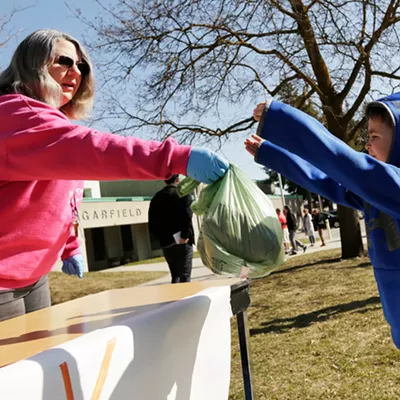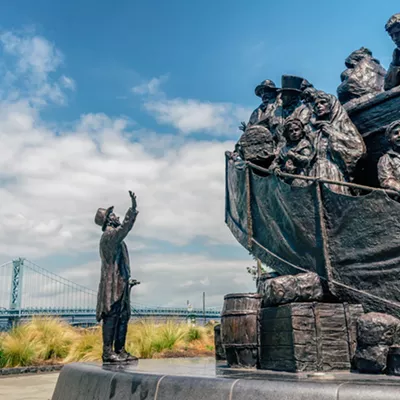As the student announced to the class that there was a website dedicated to my veneration, I grimaced — a spasm of incredulity swelling inside me. Then, in the next moment, I remembered how I had regarded my own teachers.
When I was in second grade, our teacher made us do a Presidents’ Day “art project” that involved tracing and cutting out the profile silhouettes of Washington and Lincoln. As some of us were to learn much later, these heads, which always seemed larger than normal, revealed nothing of the human beings, never mind the history. Today Martin Luther King Jr. is bled of his controversial convictions on war and poverty to suit a myth. (Today the view that our civilization is so exceptional compared with others is the equivalent of the beings in Plato’s cave insisting that the shadows, like the child’s silhouettes, are reality.)
So as a child I conferred the aura of ubermenschen around my teachers. I recall the first time I saw one of my teachers shopping and how disillusioning it was to glimpse a god engaged in the mundane acts of mortals. In a similar way, my students regard me somewhat one-dimensionally — a projection of the ideal teacher. (Be assured this view is far from universal.) Thus one student created his cyber altar.
Yet even the ancient Greek gods were flawed, and those frailties were instructive, if not tragicomic.
As some of our students deify us, we are vilified by the public as inept. The former see us a Superman, the latter a clueless Clark Kent.
Politicians and pundits insist that higher achievement will be attained if the test is improved, if the teacher is measured by the scores and if students are drilled more deliberately on facts. I am reminded of Sissy Jupe in Dickens’ Hard Times who, “must be kept to it” but became “low spirited but no wiser.”
The true test of learning is whether it is enduring beyond school and that will not be realized until learning is again endearing. And that means understanding teachers and students holistically, not as automata but as human. As Dorothy’s journey in The Wizard of Oz should instruct, the path to knowledge must be guided by both the head and the heart.
There are those who insist that the application of marketplace principles to public education will produce reform. Yet “choice” has given us no new outcomes from those schools that are generally free to choose the students they serve. And, like my students who innocently mythologize me, the reformers’ ideal is the charter school — even Arne Duncan, Obama’s education secretary, is a true believer and habitually recites the anecdotal litany of its few successes.
But Diane Ravitch, the former high priestess of the movement, now calls the idea that charter schools can “save” education a “myth.”
My students’ naivete is quite natural. Those who make public policy, however, should be sufficiently critical and independent-minded to scrutinize the evidence. What they would discern is that many of the visible and vocal critics of public education are using data selectively, a practice that I would not tolerate among my neophyte high school scholars. In school, such errors are how we learn; in politics, such errors produce bad policy.
What is needed, if we are truly to resolve our common crises, is honesty about causality, which, in public education, means confronting the culture of immediate gratification and anti-intellectualism. We must also rethink teaching, not as a hyper-cognitive science vulnerable to all kinds of behavioral manipulation, but as an art that must fundamentally nurture human needs and aspirations.
Waiting for Superman is folly, for we are at best super Clark Kents. And as my students begin to see me as more like themselves, they will acquire the confidence to acknowledge our shared flaws and individual virtues. And, hopefully, they’ll be inspired to believe that it is possible to become something better, destined not to dwell in others’ shadows but to be a source of illumination.
John Hagney has been teaching social studies and humanities at Lewis and Clark High School for 35 years. He was named one of Washington State’s regional teachers of the year for 2012 representing ESD 101.
























